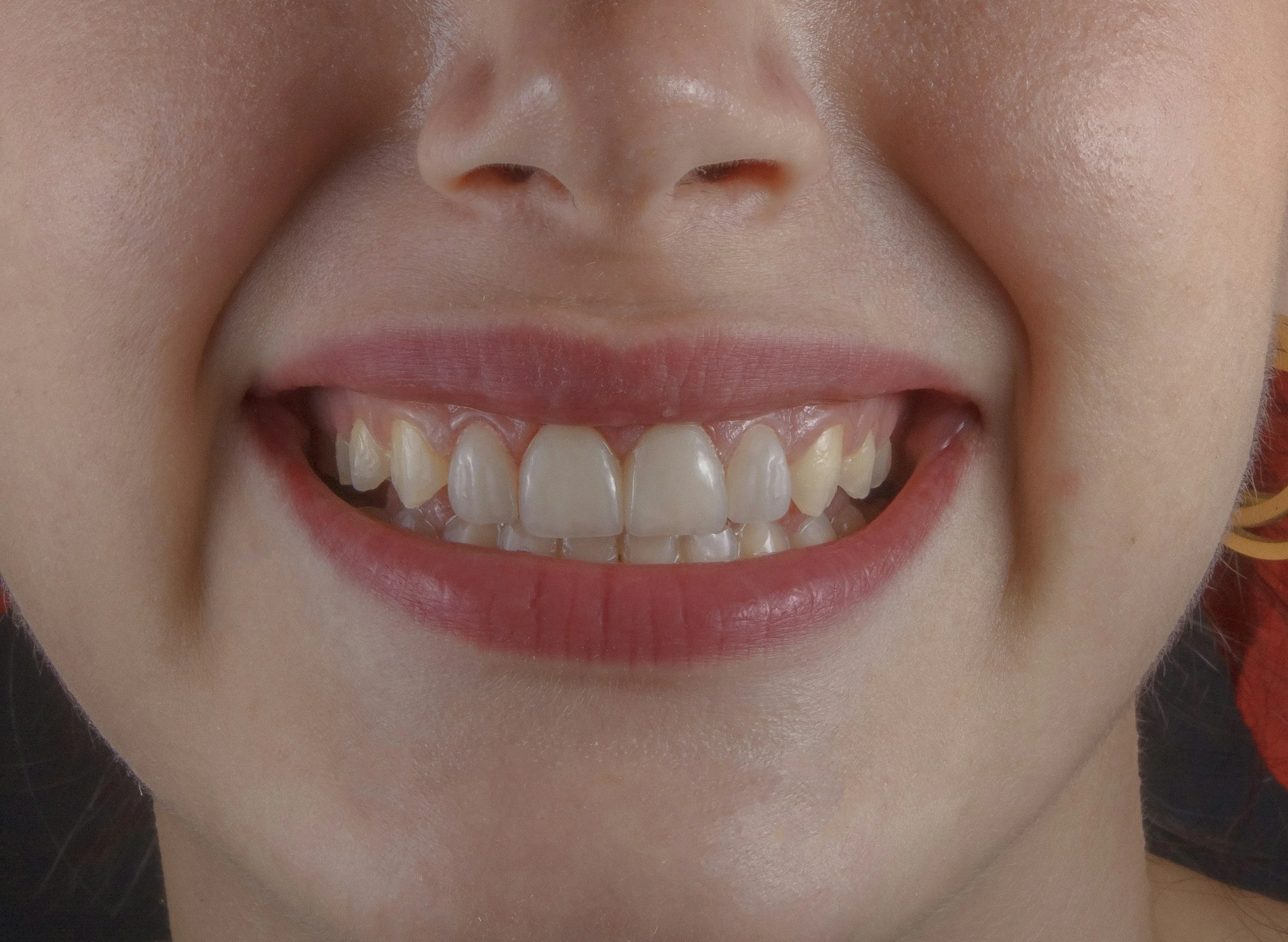How Do I Know if I Would Benefit from Orthodontic Treatment?
Signs to Watch for:
Crowding
Crowding can be one of the more obvious signs that you may need orthodontic treatment. Crowding or overlapping of teeth can make it difficult to perform proper oral hygiene such as brushing and flossing between those teeth. Not being able to brush and floss in those crowded areas can lead to cavities, plaque accumulation, and gum disease. Crowding only gets worse with age, so if you are having trouble maintaining oral hygiene in certain overlapping teeth, it may be beneficial to see an orthodontist.
Spacing
Gaps in between teeth can be due to missing teeth or extra space in the jaw. Gaps between the 2 front teeth are fairly common, and are often due to a large or low placed labial frenum (the tissue connecting your gums to your lip). One treatment option for this is a frenectomy, in which the dentist can cut off that frenum.
Bite Problems
If you notice difficulty biting, chewing, or speaking, or if your bite feels uncomfortable or misaligned, it’s a good idea to consult an orthodontist. Left untreated, bite problems can lead to jaw pain or wearing down of teeth. Below are definitions of different types of incorrect bites.
Overbite: When the upper front teeth excessively overlap the lower front teeth, covering more than 30% of the lower front teeth.
Underbite: When the lower teeth are in front of the upper teeth.
Open Bite: When teeth do not come together fully.
Crossbite: When top teeth face the inside and the lower teeth face outside.
Trouble Eating or Speaking
Similar to the point above, misaligned teeth or bite problems can create problems with eating or speaking. If teeth aren't in their proper positions then it may be hard to make certain sounds, as the tongue hits your teeth and other parts of your mouth in certain ways to make specific sounds. Orthodontic treatment may be able to help with this.
Frequent Jaw Pain
While jaw pain could be due to other factors such as stress, it may be good to get an orthodontic consult to see if teeth or bite misalignment is causing your jaw pain. Teeth not fitting together properly can cause stress on the joints in your jaw (TMJ) which can lead to a feeling of soreness, or even a cracking/popping sound when you open and close. It can also lead to bruxism, grinding the teeth at night, which will wear down the teeth over time. An orthodontist can assess the situation and see if treatment would reduce that pressure.
Wear and/or Chipping
If you notice some of your teeth starting to wear down, or even parts of your teeth chipping off, it may be a sign you need orthodontic treatment. Misalignment of teeth or bite can cause some teeth to feel much more pressure than others, eventually causing them to wear down or even fracture.
Abfraction: This is defined as improper force on a tooth that causes part of the tooth to chip away, usually creating a wedge shaped notch on the tooth near the gumline. This missing tooth structure can lead to significant sensitivity.
Self Consciousness
Orthodontics plays a huge role in esthetics! Regardless of if you have the pain or functional issues listed above, if you are insecure about your smile and it’s preventing you from showing your beautiful teeth, orthodontic treatment may be right for you. Talk to your orthodontist about your concerns and see if you can achieve the smile you want with treatment.
Consult an Expert
If you suspect you have any of the issues listed above, or even if you are unsure, you can ask your general dentist to take a look and make you a referral to an orthodontist (a dentist specially trained to straighten teeth and align bites), or you can make an appointment yourself if possible. Either way, at your first appointment the orthodontist will likely do an orthodontic exam, take x-rays and/or impressions, and review your dental history. They should then walk you through different options that may work for you, pros and cons of each, cost, and timelines. You can then make an informed decision about what option is best for you.
